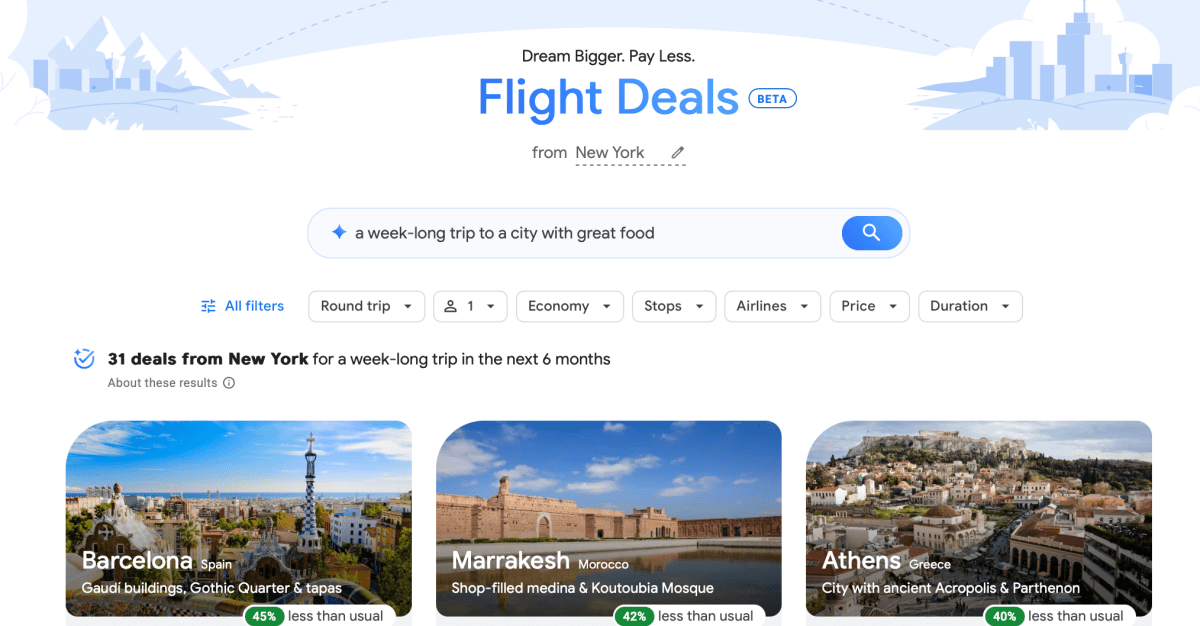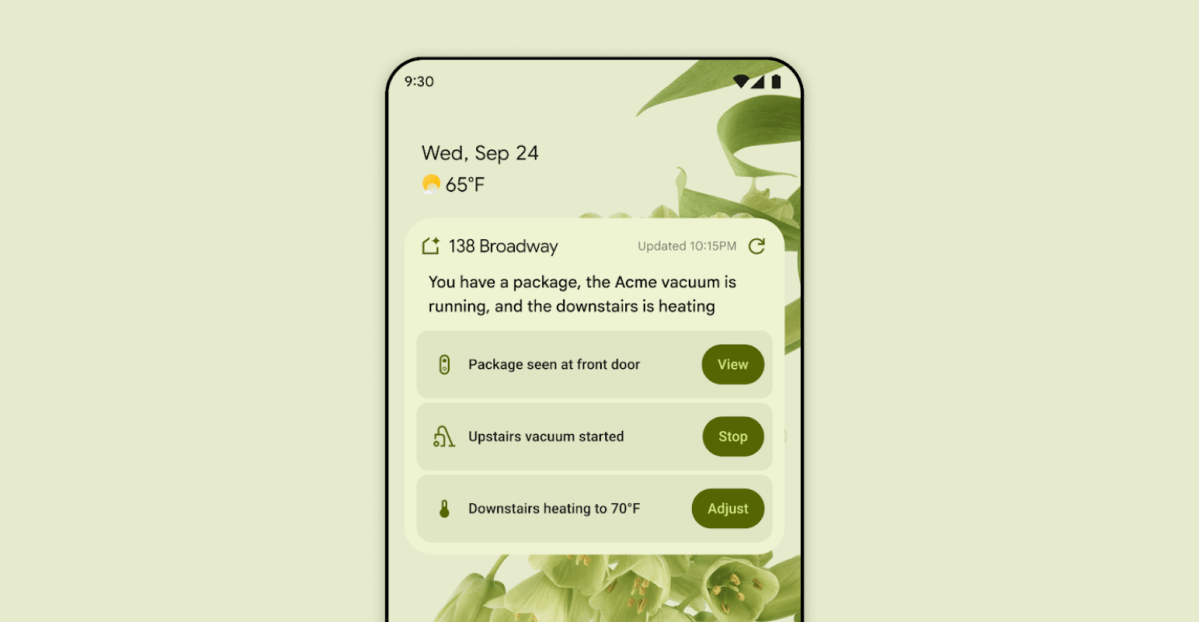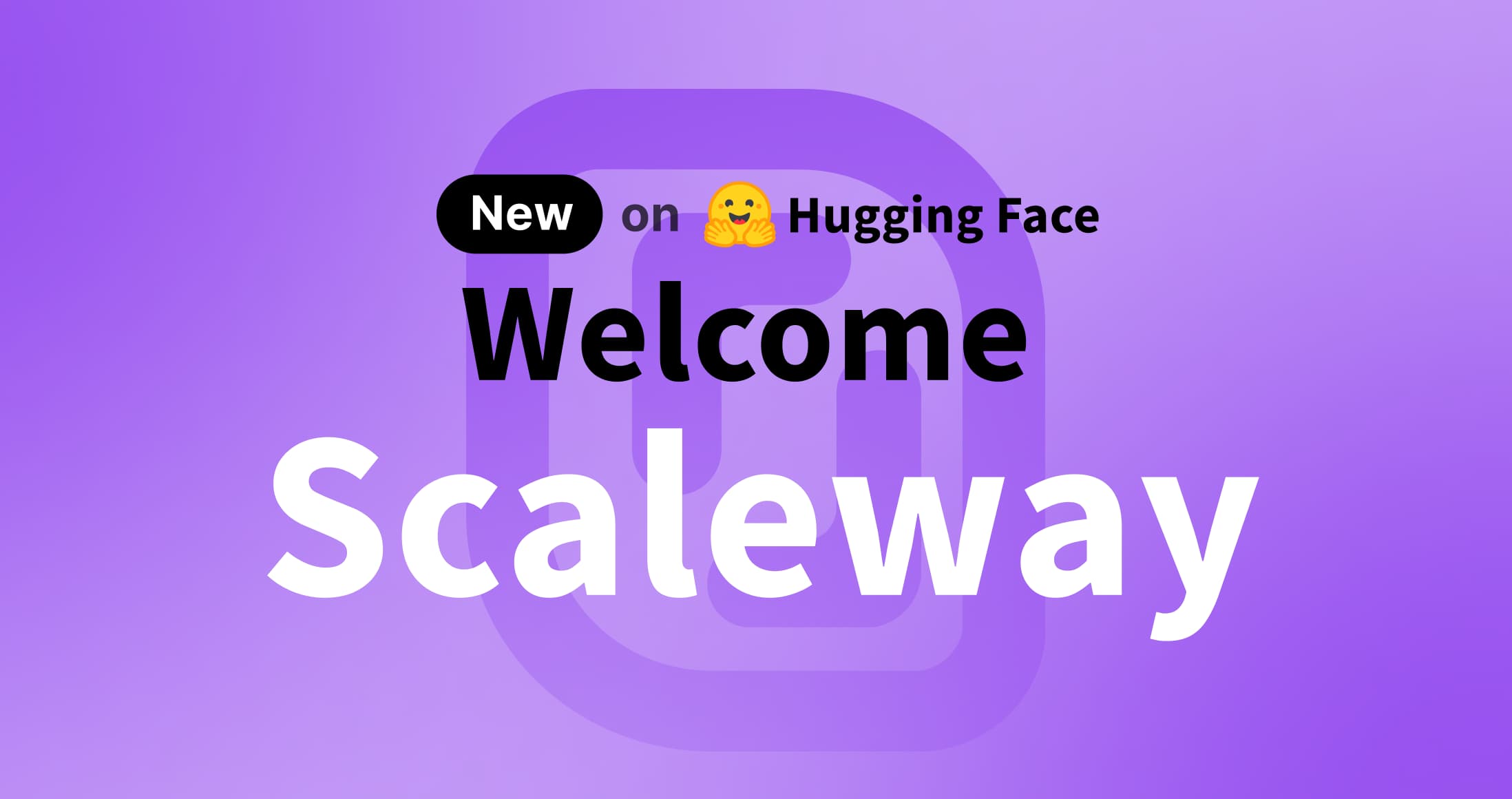
Google Flights Introduces AI-Powered Flight Deals Tool (Beta)
Sources: https://www.theverge.com/news/759444/google-flight-deals-ai-update-travel-ideas, theverge.com
TL;DR
- Google Flights is testing an AI-powered Flight Deals tool that matches budget flights to user-described destinations and experiences.
- Users can describe what they want (e.g., destination type, duration, activities) and see cheap flight options that fit those preferences.
- Results can include both obvious and offbeat destinations, with some hiccups such as incomplete results for certain searches.
- The feature is rolling out in beta to the US and Canada over the coming week and is accessible via the Flight Deals page or Google Flights menu.
Context and background
Google has been pursuing broader AI integration across its services, and the company’s latest experiment targets its airfare-searching product, Flights. The Verge reported that Google announced a new AI-powered Flight Deals tool in a beta release aimed at helping users plan budget-friendly trips even when they aren’t sure where to go. The approach mirrors a wider industry trend of applying natural-language prompts to surface relevant options in travel planning. The Verge.
What’s new
Flight Deals lets users go beyond entering a single origin and destination. Instead, you can describe the kind of trip you’d like—for example, “a weekend countryside getaway with trail rides and kayaking” or “a Europe trip with great cheese and wine in May.” Google will then use AI to generate cheap flight options that match those preferences. In an early test, the feature surfaced a mix of traditional vacation spots and lesser-known locales. For instance, a query for a “tropical destination with snorkeling” yielded Cozumel, Nassau, and San Juan as options, while a query for a “trip to Europe with hiking” surfaced cities like Cluj-Napoca and Ljubljana. Not every query produced perfect results—one search for “trips to Japan during cherry blossom season” returned “no deals.” If you don’t specify dates, Google defaults to flights within the next six months. Users can adjust filters (stops, airline) but aren’t required to use them. Google Flight Deals is rolling out in beta to US and Canada over the next week and is accessible on the standalone Flight Deals page or via the Google Flights top-left menu. This feature was highlighted in reviews of the beta period.
Why it matters (impact for developers/enterprises)
The Flight Deals tool demonstrates how AI can aid discovery in travel planning by generating destination ideas and matching them to price-competitive itineraries, rather than forcing users to rely solely on exact-prompt searches. For developers and travel platforms, it illustrates a pattern where natural-language prompts guide search algorithms toward budget-conscious options while preserving user control through optional filters. The rollout is in a beta phase, suggesting opportunities to refine result relevance and expand confidence in AI-assisted recommendations, while still allowing users to proceed with independent research before booking. The Verge’s coverage notes both the potential value and the current limitations of the feature during testing.
Technical details or Implementation
- Input mechanism: Open-ended natural-language prompts describing desired travel experiences (e.g., “a weekend countryside getaway with trail rides and kayaking”).
- AI role: Generates cheap flight options that match user-provided preferences.
- Date handling: If dates aren’t specified, the system defaults to showing flights within the next six months.
- Filters: Users can adjust filters such as number of stops and preferred airline, though they are not required to use them.
- Availability: In beta form, rolling out to US and Canada over the next week.
- Access points: Flight Deals page (standalone) or via the Google Flights top-left menu.
- Observations from early testing: A range of destinations surfaced, including traditional hotspots and offbeat locations; some searches produced less useful results, including a few that returned no deals.
- Source of the announcement and testing notes: The Verge documented the beta rollout and user experiences while evaluating the tool. The Verge.
Key takeaways
- AI-assisted flight discovery is now part of Google Flights in a beta form.
- Users can describe trips in natural language to surface budget-friendly options.
- The tool mixes familiar and lesser-known destinations and may produce imperfect results during early testing.
- Access is via the Flight Deals page or Google Flights menu, with a US/Canada beta rollout in the coming days.
- It’s a measured step toward broader AI integration in travel planning, balancing automation with user agency.
FAQ
-
How does Flight Deals work?
You describe the kind of trip you’d like, and Google uses AI to propose cheap flights that fit those preferences.
-
When does the beta roll out to users?
Google says Flight Deals is rolling out in beta to users in the US and Canada over the next week.
-
Do I have to provide dates or preferences?
No—if you don’t specify dates, Google defaults to flights within the next six months; you can still use filters if you want.
-
Where can I access Flight Deals?
On the standalone Flight Deals page or in the top-left menu of Google Flights.
References
More news
First look at the Google Home app powered by Gemini
The Verge reports Google is updating the Google Home app to bring Gemini features, including an Ask Home search bar, a redesigned UI, and Gemini-driven controls for the home.
Meta’s failed Live AI smart glasses demos had nothing to do with Wi‑Fi, CTO explains
Meta’s live demos of Ray-Ban smart glasses with Live AI faced embarrassing failures. CTO Andrew Bosworth explains the causes, including self-inflicted traffic and a rare video-call bug, and notes the bug is fixed.
OpenAI reportedly developing smart speaker, glasses, voice recorder, and pin with Jony Ive
OpenAI is reportedly exploring a family of AI devices with Apple's former design chief Jony Ive, including a screen-free smart speaker, smart glasses, a voice recorder, and a wearable pin, with release targeted for late 2026 or early 2027. The Information cites sources with direct knowledge.
Shadow Leak shows how ChatGPT agents can exfiltrate Gmail data via prompt injection
Security researchers demonstrated a prompt-injection attack called Shadow Leak that leveraged ChatGPT’s Deep Research to covertly extract data from a Gmail inbox. OpenAI patched the flaw; the case highlights risks of agentic AI.
Predict Extreme Weather in Minutes Without a Supercomputer: Huge Ensembles (HENS)
NVIDIA and Berkeley Lab unveil Huge Ensembles (HENS), an open-source AI tool that forecasts low-likelihood, high-impact weather events using 27,000 years of data, with ready-to-run options.
Scaleway Joins Hugging Face Inference Providers for Serverless, Low-Latency Inference
Scaleway is now a supported Inference Provider on the Hugging Face Hub, enabling serverless inference directly on model pages with JS and Python SDKs. Access popular open-weight models and enjoy scalable, low-latency AI workflows.





